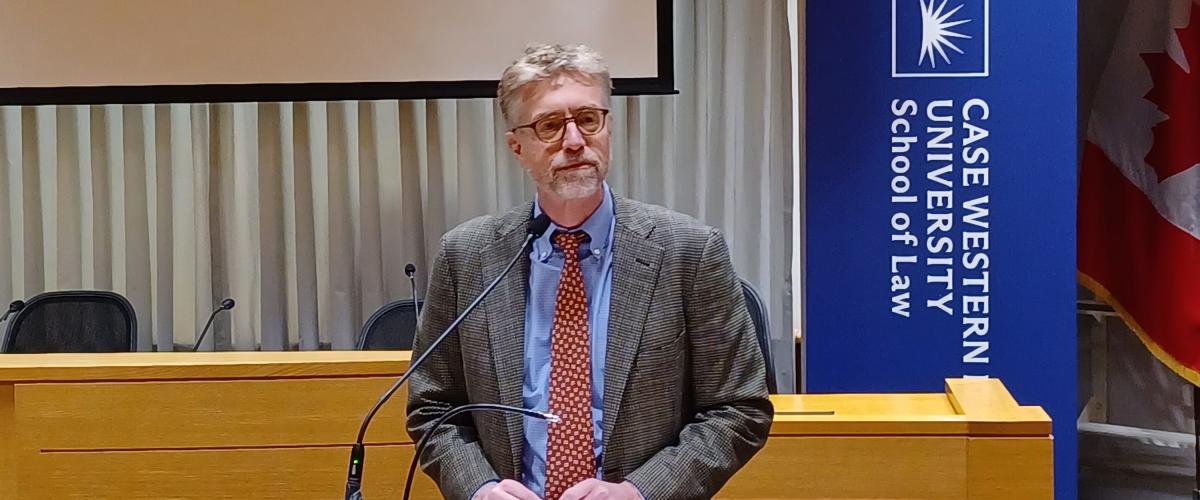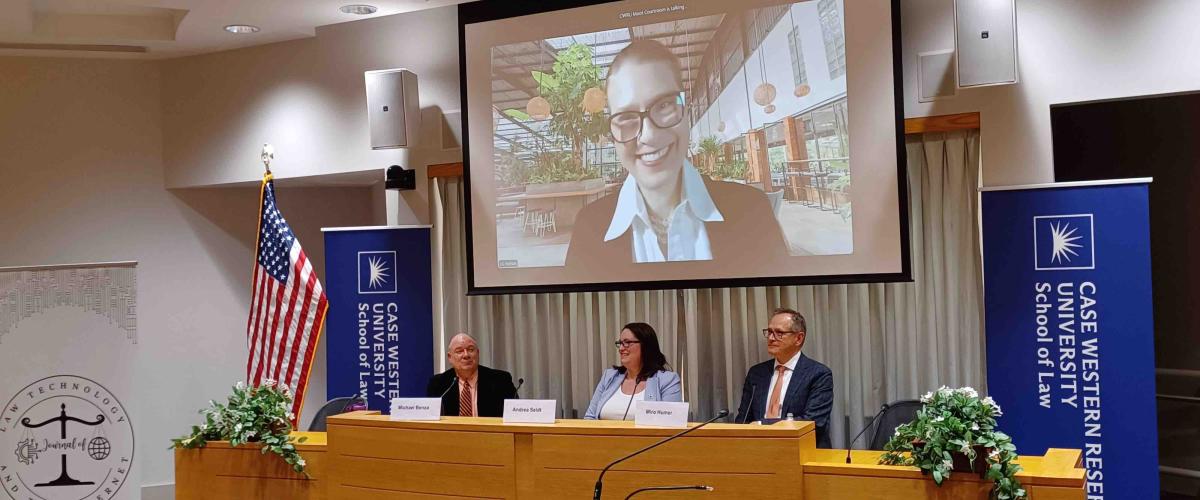On Tuesday, Sept. 17, the Center for Business Law hosted "Securities Law in the Supreme Court," a public lecture by Adam C. Pritchard and Robert B. Thompson about their book—A History of Securities Law in the Supreme Court—which was recently published by the Oxford University Press. Pritchard is the Frances and George Skestos Professor of Law at the University of Michigan. Thompson is the Peter P. Weidenbruch, Jr. Professor of Business Law at Georgetown Law. Both professors have extensively taught, researched and wrote about corporate and securities law throughout their careers.
The book traces the history of securities regulation in the Supreme Court of the United States from the passage of the Securities Act of 1933 and the Securities Exchange Act of 1934 in the shadow of the Great Depression to the present day in the Roberts Court. The research for the book extends beyond the pages of the opinions through the authors’ extensive review of the justices’ personal papers, internal correspondence, and other documents. The authors also conducted interviews with former clerks. The text intertwines various areas of academic study, including securities regulation, administrative law, Supreme Court jurisprudence and legal history. The authors provide qualitative and quantitative analysis of the Supreme court opinions that undergird the regulation of securities transactions in the United States.
The lecture provided a discussion of how the ideologies and personalities of the individual justices shaped securities law with an emphasis on insider trading regulation. Pritchard and Thompson guided the audience through various historical periods of the Court in which the Court engaged in either expansive or restrictive interpretations of securities law statutes. The authors explained that the Roberts Court has entered a period in which it largely neglects securities law, although it still hears securities regulation cases. They also hypothesized if major securities law opinions are issued by the Court that they are likely to focus on administrative law or to be issued if the Court is forced to interpret a new statute.
In discussing the event, Eric C. Chaffee, Co-Director for the Center for Business Law, stated, “Pritchard’s and Thompson’s book is a triumph. It tells the story of federal securities regulation, which is also the story of the administrative state.” He continued, “It is a must read for anyone who is interested in how markets are regulated in the United States and the role that the ideologies and personalities of Supreme Court justices have played and can play in that regulation.”
The Center for Business law at Case Western, which is co-directed by Professors Juliet P. Kostritsky and Eric C. Chaffee, is an initiative to prepare future leaders to understand business issues facing business entities, engage in research on the role and impact of government in the regulation of business and to foster public debate regarding the role of government in the regulation of businesses. It is part of the robust business law curriculum at the Law School.




